The cost of losing data to physical or logical damage makes data recovery software an increasingly valuable tool for SMBs up to enterprise organizations. Data recovery solutions ensure additional analysis and restoration steps are taken when damaged, corrupted, or failing drives make files unavailable to end users.
Many data recovery tools offer high recovery rates, backups, and advanced recovery features for managed service technicians. Today’s data recovery tools can support recovery across operating systems and file types for the hybrid IT environment, but there’s plenty of variation in the market.
Here is a look at the top data recovery software for 2022, how data recovery works, and what interested customers need to know before deciding on a solution.
Best Data Recovery Software
| Vendor | |||||||||
|---|---|---|---|---|---|---|---|---|---|
| Clever Files Disk Drill | |||||||||
| Code42 CrashPlan | |||||||||
| EaseUS Data Recovery Wizard | |||||||||
| Eassos DiskGenius | |||||||||
| MiniTool Data Recovery | |||||||||
| Ontrack EasyRecovery | |||||||||
| Prosoft Engineering Data Rescue 6 | |||||||||
| R-Tools Technology R-Studio | |||||||||
| Stellar Data Recovery | |||||||||
| SysTools Data Recovery Software | |||||||||
| TestDisk and PhotoRec |
Clever Files Disk Drill

Disk Drill by Clever Files is a market-leading choice for macOS and Windows administrators. In 2020, the vendor surpassed 600,000 personal and business licenses and 15 million installations. Beyond addressing data recovery, Disk Drill includes backups, disk cleanup, data protection, and disk health tools like SMART disk monitoring.
Clever Files offers three plans for prospective users, including its unlimited free plan, a Pro edition at $178, and an Enterprise edition for $998. Lifetime upgrades for the latter two plans are available at $29 and $99, respectively.
The Basic edition offers guaranteed recovery, recovery vault, and byte-to-byte backups of failing disks. Pro and Enterprise offer unlimited recovery activity, multiple activations, and the ability to recover all storage and file types. Further, Enterprise allows up to 10 users, premium support, and forensic data export (DFXML).
Pros
- Affordable solution with powerful data recovery capabilities
- Recovery functionality for all disk storage types and access to disk backups
- Reviews highlight the disk utility functions, easy backup creation process, and speed
Cons
- Does not support Linux OS distributions, mobile devices, or RAID recovery
- Installation is required for recovering files, and full scans can be time-consuming
- Reviewers dislike the no-refund policy, customer service, and resource utilization
Read more: Top Server Backup Software & Solutions
Code42 CrashPlan

Code42 released its flagship data recovery solution, CrashPlan, in 2007 before its pivot to data loss prevention, insider risk, and cybersecurity in recent years. CrashPlan today exclusively serves the B2B community with small business and enterprise plans.
CrashPlan for Small Business is deployable in minutes and comes with features like continuous and external drive backups, control over file retention, dedicated support, and 256-bit AES data encryption at rest.
CrashPlan Cloud for Enterprise extends data security to a swath of endpoints requiring file backup and recovery capabilities. With the Enterprise edition of CrashPlan, administrators can create and manage legal hold preservation policies, verify backup system health, and set CPU allowances based on user activity.
Prospective customers can try CrashPlan with a 30-day free trial, or start its Small Business plan at $10 per month per device. Quotes for CrashPlan for Enterprise are available upon request.
Pros
- Powerful and flexible cloud backup-based data recovery solution
- Customizable file versioning, external backups, and tools for managed service providers
- Reviews priase the flawless backup component and excellent customer service
Cons
- No plan options for personal or free use
- Access control policies potentially make archives vulnerable to unauthorized users
- Reviews cite high CPU utilization and the GUI needing more configuration tools
EaseUS Data Recovery Wizard
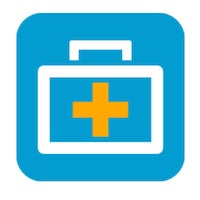
EaseUS has an impressive solution stack that includes data recovery, partition management, backups, data transfers, and multimedia, serving over 5 million customers and 5,000 partners.
The vendor is known for its Data Recovery Wizard for Windows and Mac, and data recovery for iOS and Android devices. The vendor’s most extensive recovery software is for Windows administrators, with additional recovery solutions for partitions, SQL databases, Exchange Server Mailboxes (EDB), and Microsoft Outlook.
EaseUS offers a free or commercial version of the Data Recovery Wizard for each operating system option. Administrator recovery capabilities extend to lost data, partitions, emergency data, formatted files, and storage media. At the same time, other convenient features include tags for files, Quick and Deep Scan, and export/import sessions.
EaseUS is prepared for over 100 data loss scenarios and supporting recovery of 1,000 different file types. Interested customers can start with the free version of Data Recovery Wizard or go with a free trial of its Pro or Pro+Bootable Media editions with monthly, annual, and lifetime upgrade subscription options.
Pros
- Simple and friendly GUI for all skill levels
- Extensive support for devices, file systems, and varying customer budgets
- Reviews highlight multiple scan options, ease of use, and file preview function
Cons
- Less advanced features than competing solutions
- Slow scanning and processing can cause delays in the data recovery process
- Reviewers dislike the expensive plans and inability to recover expected files
Eassos DiskGenius

Launched in 2010, Eassos is a global software company with core solutions addressing data recovery, partition management, and backups. Eassos’s solution for data recovery, DiskGenius, includes an array of features for disk and partition management, cloning, sector editing, file operations, and more.
Previously known as PartitionGuru, DiskGenius offers recommendations for optimizing disk capability, recovery of deleted and missing files and partitions, and different modes for backing up partitions and disks.
DiskGenius is compatible with Windows OS devices and includes a hex editor, recovery for RAID data, and free technical support. Interested customers can choose from free, standard, and professional licenses with additional plan customization options for personal, family, and technician-level activity.
DiskGenius Standard starts at $69.90 per device and includes features like copying sectors, support for dynamic disks, and lost partition recovery. A DiskGenius Professional license ($99.90) adds setting of hard drive parameters, writing files, and support for virtual disk files and recovery.
Pros
- Free version with impressive data recovery features for small businesses
- Includes tools for backup and restoration, disk utility, and partition management
- Reviews highlight the rate of successful recovery and extent of recovery options
Cons
- Only supports Windows infrastructure, and the GUI is less user-friendly
- Allows for free discovery but requires payment for executing recovery
- Reviews cite a lack of customer or community support, poor design, and expensive plans
Read more: Best Server Virtualization Software
MiniTool Data Recovery
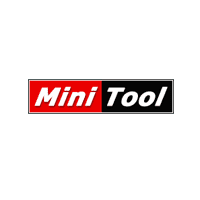
MiniTool Data Recovery can recover files for servers down to phones and USB drives, whether the cause is a hard drive failure, virus attack, or raw partition. Newly updated to support Windows 11, MiniTool Data Recovery can accommodate several data loss instances to recover deleted, lost, or reformatted files.
Beyond data recovery, MiniTool specializes in backup software, partition management, and multimedia tools, as well as an active blog with valuable tips for administrators.
For SMBs up to large enterprises, MiniTool is available in four annual business licenses and comes with support for the latest editions of PC and Windows server systems. The first two plans, Standard and Deluxe, are only licenses for a single PC or server, with the latter including a snap-in WinPE Bootable Builder tool.
The Enterprise license offers organizations up to 99 installations for data centers and complexes, and the Technician plan goes up to 299 PCs or servers. MiniTool also has a partnership with another top data recovery pick, Stellar, to offer four different editions of its premium data recovery software for Mac systems.
Pros
- Partnership with Stellar to provide data recovery for Mac infrastructure
- Technical support available 24/7, lifetime licenses, and a 30-day money-back guarantee
- Reviews highlight device and system compatibility and partition management
Cons
- Not compatible with Linux
- Noted instances of slowness or requiring restarting
- An outdated GUI and advertising placements within the software can be annoying
- Reviews cite a cluttered interface and limited features for the free version
Ontrack EasyRecovery
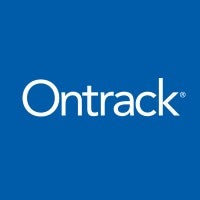
Ontrack boasted the world’s first data recovery solution in 1987. Three decades later, it continues to enable tens of thousands of recoveries for hard drives, RAID, servers, tape, mobile, email, and more every year. Ontrack offers recovery solutions for data and email, as well as data erasure hardware and software, with four core products.
Its data solution, Ontrack EasyRecovery, is available for Mac, Windows, and Linux devices and supports recovery for corrupted, damaged, deleted, or reformatted drives. Administrators can also pause and save scan results to optimize workloads.
Ontrack EasyRecovery includes a bundle of standard and advanced features for a range of user needs. Small to midsize businesses can benefit by monitoring drive health and creating disk images critical to business continuity, starting with Ontrack’s Professional edition. Premium comes with cloning and repair functionality for photos and videos.
The Ontrack EasyRecovery Technician and Toolkit plans go the furthest, with features like RAID volume recovery and multiple system installations. Prospective customers can try Ontrack plans with a free trial before committing to an annual subscription.
Pros
- Fast, powerful data recovery solution in lightweight and straightforward software
- Advanced technical features with additional access to emergency data recovery services
- Reviews highlight customer service, managed services, and scalability
Cons
- The user interface can be daunting to novice administrators and requires some digging
- Premium plans are more expensive, and no option for a lifetime license
- Reviews cite complicated integration for standard APIs and high CPU utilization
Read more on eSecurityPlanet: Best Ransomware Removal and Recovery Services
Prosoft Engineering Data Rescue 6
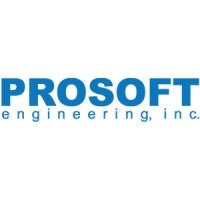
Data Rescue 6 is available as a Mac or Windows product in its most recent update, allowing administrators to view past scan data, clone hard drives, and create bootable disks for recovering files.
For scanning, users can specify external storage like USB and SD devices with Scan Source, use Quick Scan for systems struggling to mount, or Deep Scan in the event of an emptied trash bin.
Standard licensing for Data Rescue 6 starts at $19, while the Professional File Recovery edition is available as an annual subscription for $399. Compatible with macOS and Windows, Prosoft’s Professional edition includes security tools for erasing drives, file previews, optimized RAID configurations, and unlimited file recoveries and system activations.
Pros
- Affordable solution that comes with self-learning file type support, known as FileIQ
- Efficient scanning capabilities and high-powered file recovery for novices and veterans
- Reviews highlight advanced search functionality and tools for bootable drives
Cons
- The trial allows for scanning, but payment is required to execute recovery
- A standard set of features relative to competing data recovery solutions
- Reviewers dislike complex GUI for users and limited licensing and pricing options
Read more: Best Database Software & Management Systems
R-Tools Technology R-Studio
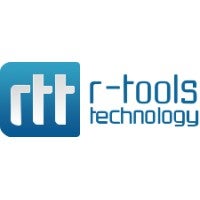
R-Tools Technology offers a handful of solutions for administrators, including undeleting files, recovering multimedia, and drive imaging. Still, its chief product is its data and hard disk recovery software, R-Studio.
Available for Windows, macOS, and Linux, R-Studio supports the spectrum of file systems and includes critical capabilities like recovery on network computers, a hex editor, damaged RAID recovery, and SMART monitoring.
R-Studio’s original audience was advanced IT professionals and computer forensic experts; thus its functionality goes beyond routine data recovery.
R-Studio’s advanced data recovery algorithm allows administrators to scan for file signatures, search for lost partitions, and recover damaged or unsupported file systems. With in-depth file analysis, users can also dig into file metadata and estimate successful recovery probability. R-Studio licenses start at $50 for Windows systems and $80 for macOS and Linux systems; pricing goes up to the R-Studio Technician license for $899.
Pros
- The most substantial level of support for different OS and file system types
- Extensive administrator control over managing and executing the recovery process
- Reviews highlight recoveries from unknown file systems and deep discovery
Cons
- Complex interface requires significant technical skills for optimizing its capabilities
- Performance issues, such as processing taking hours to complete
- Reviews cite insufficient training or support, and problems qualifying for a refund
Stellar Data Recovery
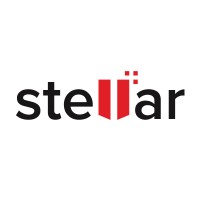
Stellar Data Recovery is an industry leader, serving nearly every country and 3 million customers over 25 years. The data recovery software specialist offers a suite of business solutions, as well as free and premium consumer data recovery products for desktops, laptops, iOS, and more.
Stellar Data Recovery Professional for Windows or Mac offers commercial data recovery capabilities such as data regain from partitions, and recovery from crashed systems and archived folders. The Premium version further enhances file preview, disk imaging, and universal file support.
Stellar’s solutions include a RAID Data Recovery Tool for RAID and Windows drives. With Stellar, administrators can recover lost encrypted data and email data from files (PST, DBX, EDB, and NSF) and retrieve data from a range of Windows and macOS devices.
Pros
- User-friendly and modern GUI with a seamless process for enabling data recovery
- Free, professional, premium, and technician plans with a 30-day money-back guarantee
- Reviews highlight advanced testing and cloning, and a helpful drive monitor
Cons
- Underwhelming customer support experience limited to technical documentation
- Bugs in scans where existing files show up as deleted or too difficult to parse through
- Reviews cite slow recovery speeds and expensive subscriptions for small businesses
Read more: Best Low-Cost RADIUS Servers
SysTools Data Recovery Software
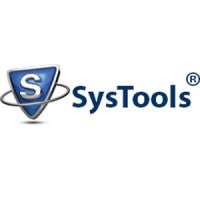
SysTools’ extensive solution stack includes products and services for data recovery, digital forensics, and cloud backups. SysTools Data Recovery Software provides robust recovery functionality and supports device types like hard drives, USB drives, RAID data, and external disks for Windows and macOS systems. It offers file format support for FAT (16 and 32), exFAT, and NTFS.
SysTools Data Recovery Software allows administrators to search and preview specific files, recover corrupted data, restore permanently deleted data, or extract and save recovered data.
Interested customers can purchase a Personal, Business, or Enterprise SysTools Hard Drive Recovery license in its full version, or as a bundle that includes Pen Drive Recovery. SysTools strongly recommends trying its demo before purchase.
Pros
- Easy-to-use interface and fast data recovery tool with automated backup capabilities
- Chat support is available 24/7 with a stack of additional solutions
- Reviews highlight the ease of discovery, successful recoveries, and pricing flexibility
Cons
- Not a fit for Linux and doesn’t support HFS+, APFS, and ext file system types
- Slower performance, depending on the volume of data recovered or backed up
- Reviews cite the product not working as expected, and trouble to qualifying for refunds
TestDisk and PhotoRec
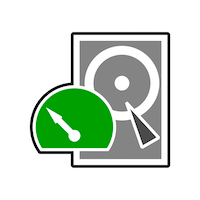
Christophe Grenier — open-source developer and current COO of French cloud solutions vendor Global SP — released TestDisk and PhotoRec in 2002. Twenty years later, these two data recovery software solutions are arguably the most popular free and open-source tools available.
TestDisk was designed to recover lost partitions and restore non-booting disks for standard data recovery capabilities. PhotoRec serves as a companion program to TestDisk, specializing in recovering digital camera memory.
TestDisk’s data recovery features include recovering deleted partitions, FAT and NTFS boot sector from backups, and undeleting files from various file systems. PhotoRec gives administrators the ability to recover lost files like documents, pictures, and videos from a range of hard disks, memory cards, USB memory drives, and more.
Fit for technicians conducting onsite recovery, TestDisk and PhotoRec offer data recovery functionality, robust compatibility, and an active support forum at no cost.
Pros
- Free, open-source software for use and modification under GNU license
- Cross-platform (Windows, Linux, BSD, SunOS, and macOS) and robust file support
- Reviews highlight its extent of features and admin functionality for cost
Cons
- Command-line GUI less a fit for inexperienced and novice administrators
- Not compatible with the newest Apple file system standard (APFS)
- Reviews cite trouble evaluating the extent of recoverable files, and impartial recoveries
Read more: Top Rack Servers
What Is Data Recovery?
Data recovery is the method of restoring files from damaged, accidentally deleted, or corrupted storage media devices like internal storage devices (HDDs and SSDs), external storage devices (USB drives and memory cards), and mobile devices.
Data recovery capabilities are essential to managing device damage, viruses, operating system failure, and data theft. As securing data becomes increasingly important, access to recovery software is vital to IT risk management and business compliance efforts.
Read more: Best Server Security Services
How Does Data Recovery Software Work?
Data recovery software solutions enable the scanning, identification, and recovery of files from damaged or unavailable systems. After failure or data loss, data recovery tools search disk storage for pieces of the original file and attempt to reform the data structure to its original state.
Through a user interface, administrators can configure scans to search for specific files, preview and analyze files, and execute needed extraction and restoration to a replacement storage device when necessary.
How to Compare Data Recovery Software Solutions
Before making a decision, be sure to consider these questions:
- What types of file systems, operating systems, and storage devices are supported?
- Does the solution meet organization needs for recovering common file types?
- Are the pricing and licensing terms reasonable for expected use and benefits?
- Can administrators enable or add customized and high-speed scanning?
- What level of technical or customer support is available with plans?
- Does the vendor partner with any drive manufacturers to offer SMART monitoring?
- What distinguishes this solution from alternative data recovery software?
- Does the solution offer any features for addressing ransomware or encrypted devices?
Operating System Compatibility
For administrators using multiple operating systems or an array of devices, or recovering niche file types, it’s crucial the data recovery solution has hybrid compatibility. The three most popular and widely used operating systems are Microsoft Windows, Apple macOS, and Linux.
Data recovery support for Windows systems is the most available, but macOS support isn’t far behind. Linux remains a favorite for IT professionals, making support for Linux distributions a convenient feature for technicians.
File System Compatibility
File systems (FS) also play an important role in considering data recovery solutions. File systems are parts of disks representing a specific data block; these vary based on user and system requirements. Top data recovery solutions offer some mix of the following, aligned to Windows, macOS, and Linux data structures.
Windows File Systems
| File System | Description |
|---|---|
| NTFS | The New Technology File System (NTFS) is the most common file system for Windows computers and systems, with a high capacity and support for 48- and 64-bit values to reference files. Noted features of NTFS include file system journaling, access control, encryption, and compression. |
| FAT | The oldest Windows file system is the File Allocation Table (FAT), a simple, lightweight data structure relative to NTFS. Available on floppy disks, flash drives, and memory cards, editions of FAT (12, 16, and 32) are less popular today, but still widely in use for camera file systems. |
| exFAT | The successor to FAT and optimized for flash drives, exFAT has even more compatibility than NTFS and offers more data capacity and partition limits than FAT32. exFAT is the current standard for SD cards. |
macOS File Systems
| File System | Description |
|---|---|
| HFS / HFS+ | The Hierarchical File System (HFS) was developed by Apple for structuring files on Macintosh computers. As drive capacities grew, Apple released HFS+ with a list of improvements to its established file system, including journaling, encryption, compression, and efficient partitioning. |
| APFS | The newest and currently deployed FS for Apple’s extensive product suite is the Apple File System (APFS). APFS improves on its predecessors with point-in-time snapshots, full-disk encryption, metadata corruption prevention, cloning, and tracking file changes. |
Linux File Systems
| File System | Description |
|---|---|
| ext2 ext3 ext4 | The Extended File System (ext) is the native FS for Linux distributions. The first prominent version, ext2, was released in 1992. Updates leading to ext3 included file change tracking and journaling options, while the most recent release, ext4, supports up to 16TB files, twice as many subdirectories, and a file system size of 1 EB. |
Read more on TechRepublic: HFS+ vs APFS: Which Apple File System Is Better?

